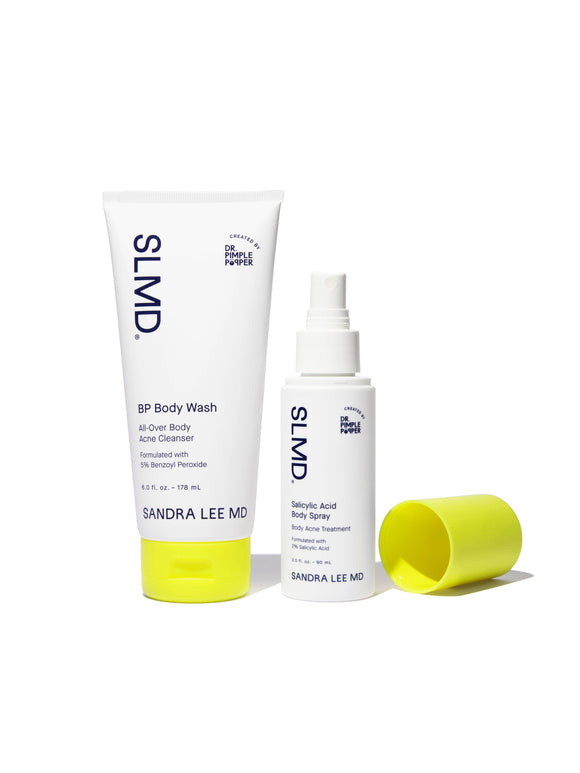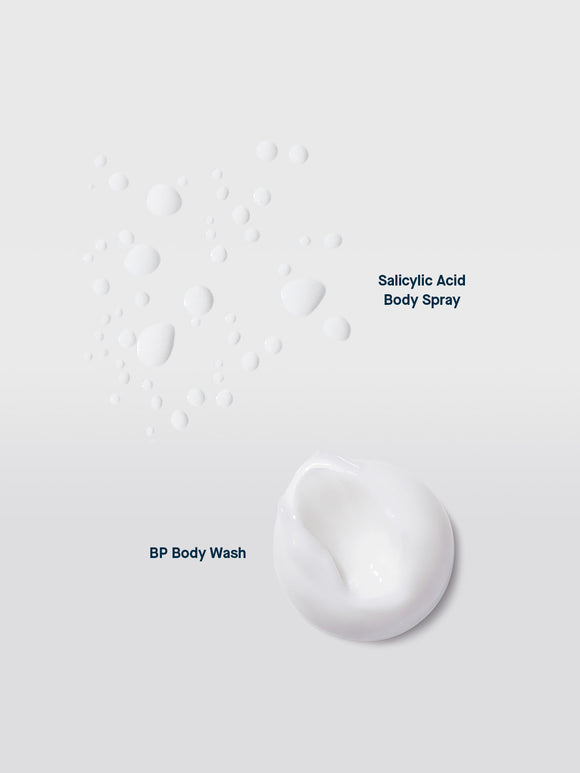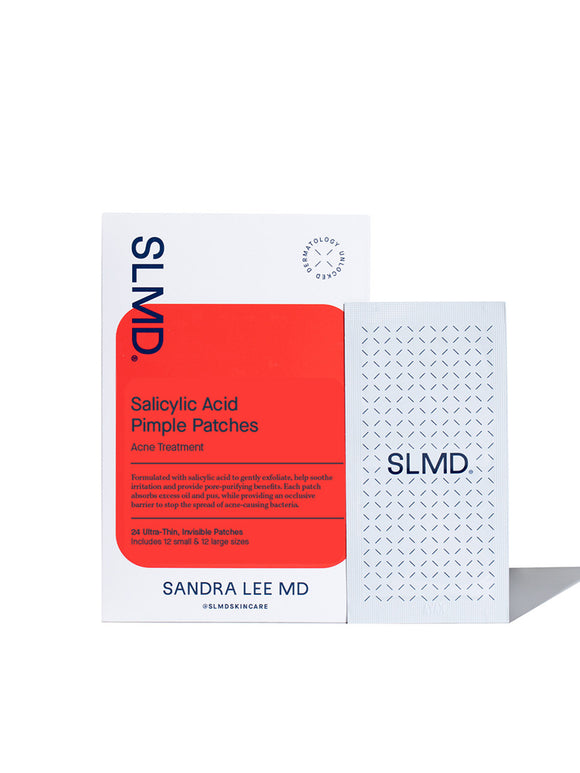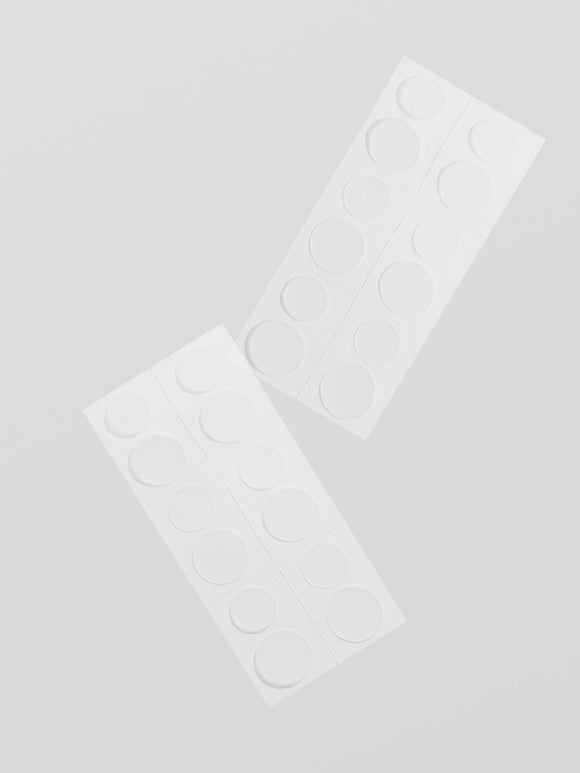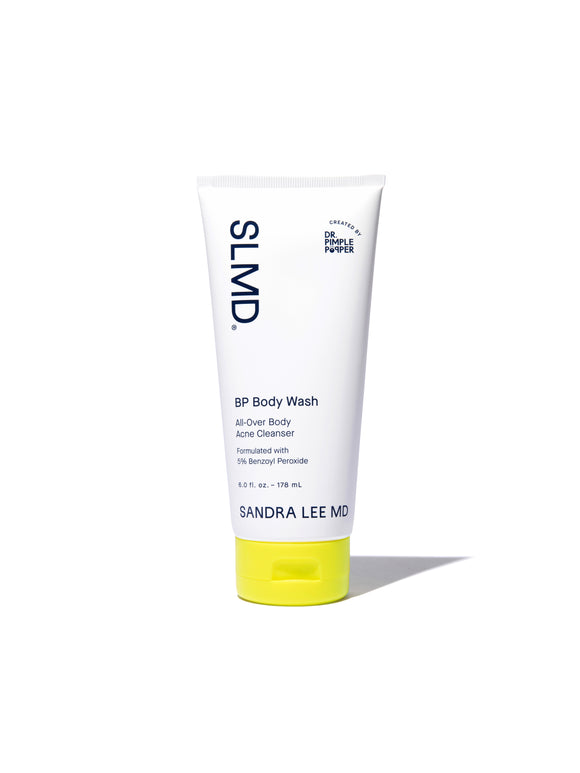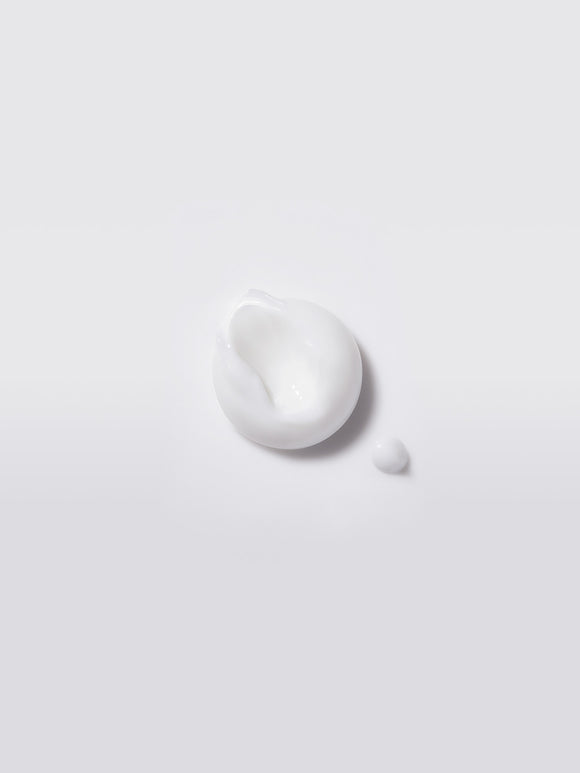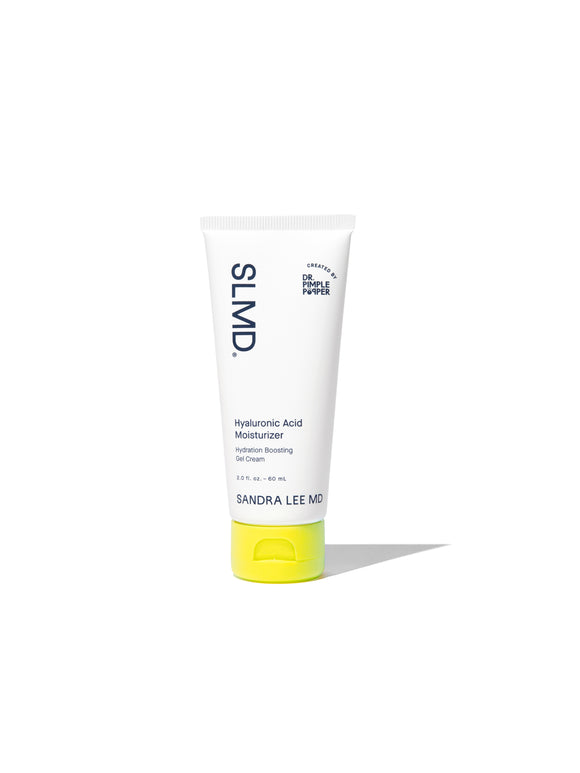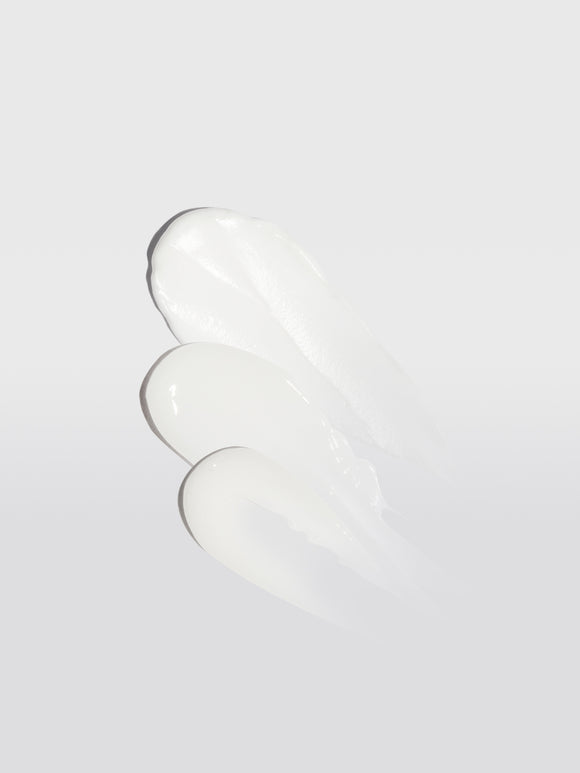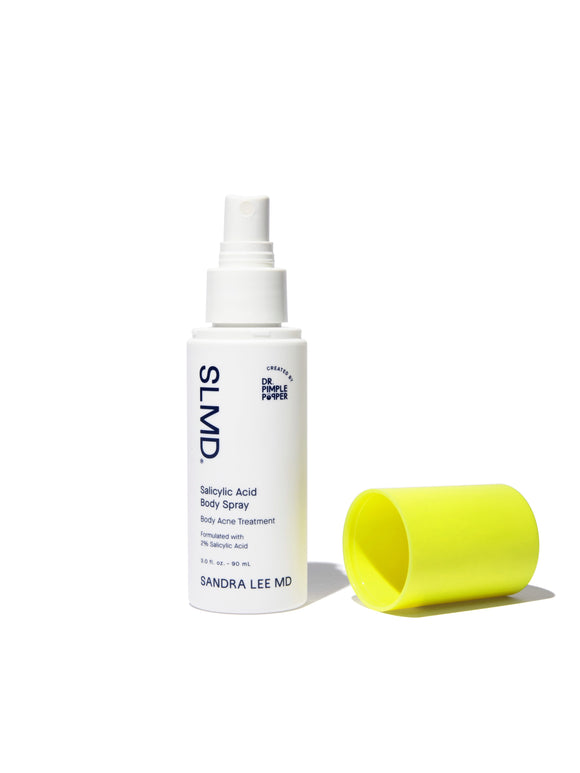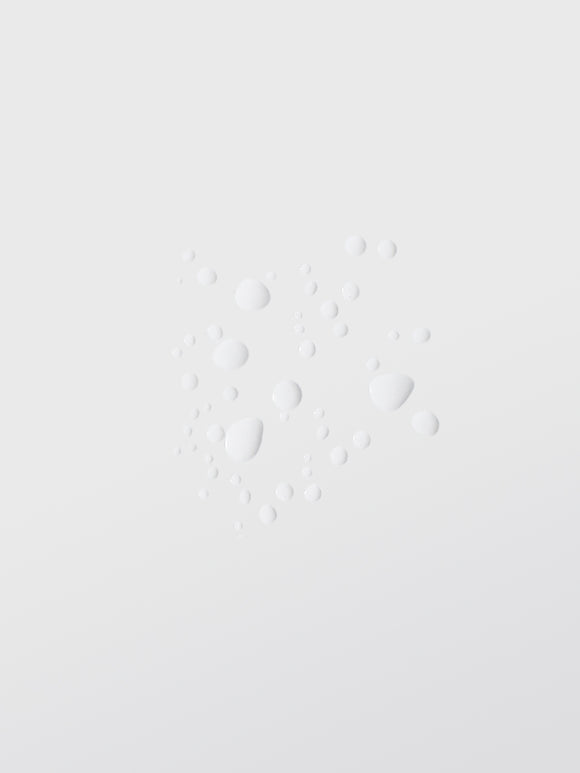
The Root Causes of Acne — And What You Can Do About Them
The better you understand your breakouts, the more effective your acne treatment plan will be.Published:
5 minute read
No matter the trigger or type of breakout, your acne is dependent upon four underlying factors. Understanding these root causes — and making small, targeted adjustments to your skincare routine — can make a huge impact on your journey to clear skin.
Genetic causes of acne: how your skin type is inherited
While there is no single "acne gene," genetics plays a significant role in determining your skin type and its susceptibility to acne. Parents can pass down characteristics like an overproduction of sebum (oil) or dead skin cells, both of which contribute to acne development. If your family has a history of acne, it’s likely you’re more prone to breakouts.
Recent research has also highlighted the potential role of the gut-skin axis, showing that your microbiome — the unique balance of bacteria, fungi, and viruses living on and within your body — could influence your tendency to develop acne. This microbial balance is partly inherited, meaning your skin health might be tied to the microorganisms passed down from your parents.
To manage genetically influenced acne, focus on using products that control oil and prevent pore blockages. Ingredients like benzoyl peroxide and salicylic acid are especially effective because they tackle excess sebum and dead skin cells.
Dr. Pimple Popper's Acne All-Stars
How hormones (androgens) play a role in acne formation
Hormones, particularly androgens, play a crucial role in acne development. Androgens are a group of hormones that increase during puberty in both males and females. These hormones stimulate the sebaceous (oil) glands in your skin to produce more sebum. When there’s an excess of sebum, it can mix with dead skin cells and clog pores, leading to acne.
Androgens like testosterone can also increase the growth of skin cells that line hair follicles, further contributing to clogged pores. Additionally, they can influence the skin’s inflammatory response, making the development of acne more likely.
This increase in oil production and clogged pores, caused by hormonal activity, is a key driver of acne for people of all ages, not just those experiencing hormonal changes due to menstruation or pregnancy. Managing excess oil production through gentle exfoliants, like salicylic acid, and antibacterial treatments, such as benzoyl peroxide, can help reduce breakouts linked to androgenic activity.
Try: SLMD Salicylic Acid Cleanser, Benzoyl Peroxide Acne Lotion
Environmental acne triggers: weather, pollution, and water quality
Environmental factors can exacerbate acne. Exposure to pollutants and UV rays, changes in temperature, and even the quality of your water can all contribute to breakouts.
- Weather: Hot, humid conditions can cause your skin to produce more oil, increasing your chances of developing acne. Cold, dry weather can lead to dehydrated skin, which may trigger your sebaceous glands to overcompensate with excess oil.
- Air pollution: Pollutants in the air can cling to your skin, causing irritation and increasing inflammation, which can lead to acne. This is particularly true if you work in a humid or greasy environment, like a kitchen.
- Water quality: Hard water, which contains high levels of minerals, can dry out your skin, making it more susceptible to irritation and acne. If you live in an area with hard water, consistent use of a moisturizer is crucial.
To protect your skin from environmental stressors, use products that provide a barrier against pollutants and UV damage while keeping your skin hydrated.
Try: SLMD Facial Moisturizer with Vitamin C, Daily Moisturizer with SPF 15
Lifestyle factors: stress, hygiene, and diet
Lifestyle choices play a major role in how often and how severely you experience breakouts. Factors like stress, hygiene, diet, and cosmetic products can all impact your skin health.
- Stress: Psychological stress triggers the release of cortisol, which increases oil production and inflammation, making acne worse. Additionally, stress can impair your skin’s ability to heal, leading to prolonged breakouts.
- Hygiene: Poor hygiene, especially after sweating, can clog pores with sweat, dirt, and bacteria. Sitting in sweaty clothes for too long or not washing your face after a workout can exacerbate acne.
- Diet: Studies suggest that a high-glycemic diet (rich in refined carbs and sugars) and dairy products can contribute to breakouts by spiking insulin levels and promoting inflammation.
To minimize lifestyle-related acne, maintain good hygiene, manage stress through relaxation techniques, and adopt a balanced diet. Make sure to choose non-comedogenic skincare, hair products and cosmetics to prevent clogged pores.
Try: SLMD BP Acne Spot Treatment, SA Acne Spot Treatment, Salicylic Acid Body Spray, BP Body Wash
Simplifying your acne routine for better results
With so many products available, it’s easy to feel overwhelmed. The key to effective acne management is simplifying your skincare routine with targeted products designed to work in tandem. Ingredients like salicylic acid and benzoyl peroxide are proven to target acne by reducing oil, unclogging pores, and fighting bacteria.
If you’re unsure where to start, choosing a high-quality acne kit can simplify your routine and deliver proven ingredients like salicylic acid to unclog pores and benzoyl peroxide to target acne-causing bacteria. Look for a regimen that’s easy to follow, with products for both morning and night to ensure consistency, which is key for long-term acne prevention.
Try: SLMD Acne System and Body Acne System
FAQ: Specific concerns about acne causes and treatments
Q: Can changes in climate cause acne breakouts?
A: Yes, sudden changes in weather — like moving from a humid environment to a dry one — can disrupt your skin's moisture balance, potentially triggering breakouts. Use a moisturizer suited to the climate you’re in to keep your skin stable.
Q: What is fungal acne, and how is it different from regular acne?
A: Fungal acne, caused by an overgrowth of yeast, looks similar to regular acne but is treated differently. It often appears as small, itchy pustules. Use antifungal treatments to address it, rather than traditional acne treatments.
Q: Can acne be caused by certain medications?
A: Yes, medications like corticosteroids, lithium, and some hormonal contraceptives can trigger or worsen acne. If you suspect your medication is causing breakouts, consult your doctor about alternative options.
Q: Does dehydration contribute to acne?
A: Dehydration can lead to dry skin, prompting your sebaceous glands to produce more oil as compensation, which may clog pores and cause acne. Staying hydrated and using a suitable moisturizer can help balance oil production.
Q: What is the link between acne and gut health?
A: Emerging research shows that your gut microbiome may influence your skin health. Imbalances in gut bacteria can lead to inflammation, which may manifest as acne. A balanced diet rich in probiotics could help support clearer skin.
Q: How can I prevent acne from face masks (maskne)?
A: Wearing face masks for prolonged periods can trap sweat and bacteria on your skin, leading to breakouts. To prevent maskne, cleanse your face regularly, use non-comedogenic moisturizers, and change your mask frequently.

Dr. Lee's Last Word
Acne can be influenced by many factors, from genetics and hormones to lifestyle and environment. But no matter the cause, consistent skincare and a deeper understanding of what triggers your breakouts are key. Stay proactive, and remember, clear skin is a journey — so be kind to yourself.





